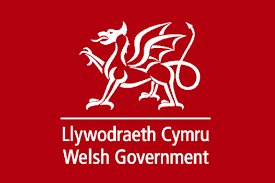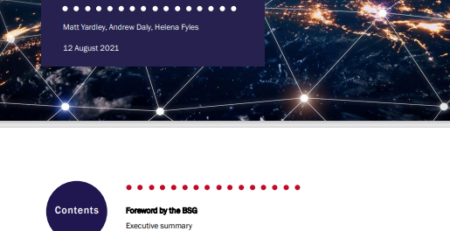New money for innovative technologies as 2017 superfast broadband landscape becomes clearer
The Government has treated the broadband community to a new announcement and restatements of intent as part of this week’s Autumn Statement and National Infrastructure Plan.
The main new funding announcement from yesterday’s National Infrastructure Plan was the opening of a £10 million competitive fund in 2014 to market test innovative solutions, delivering superfast broadband services to the most difficult to reach areas of the UK. The BSG welcomes this fund; an intelligent blend of different technologies (including fixed, mobile and other solutions) will be crucial in reaching the government’s ambition for 99% access to superfast broadband by 2018.
We also saw a degree of clarification on BDUK’s future role, with a forthcoming new Memorandum of Understanding which will reinforce the status of Broadband Delivery UK (BDUK) as a distinct delivery unit with a strengthened delivery focus. This included mention of the recruitment of a new Chief Executive.
The Chancellor did not reference broadband in his speech to parliament this morning, and the Autumn Statement document itself repeated those announcements made in the National Infrastructure Plan the day before. These included restatements of previously announced investments, including on the urban broadband fund, MIP and other areas (see Appendix below).
In addition, we now have timings regarding a number of previous announced government strategies, including the Digital Communications Infrastructure Strategy announced in this summer’s communications paper which the BSG will continue to work closely on:
The BSG look forward to continuing to work with government and industry on these areas.
Appendix: Relevant excerpts
Government investment decisions from National Infrastructure Plan (p.57):
3.102 Where the case for commercial investment is not strong, the government is therefore:
- providing £790 million in central government funding to deliver superfast broadband; to enable the benefits of superfast broadband to be felt across the UK, the government will open a £10 million competitive fund in 2014 to market test innovative solutions, delivering superfast broadband services to the most difficult to reach areas of the UK; the government will continue to support local bodies to develop appropriate strategies to procure additional coverage in areas not covered by current plans, using the £250 million allocated at Spending Round 2013; this, in addition to the existing £530 million of central government investment, will enable superfast broadband coverage to reach 95 per cent of the UK
- investing £150 million in 22 ‘super-connected cities’ across the UK
- investing up to £150 million to improve the quality and coverage of mobile voice services
3.103 The government has enabled delivery of fixed and mobile broadband services through:
- facilitating the commercial rollout of 4G mobile services through the clearance and release of 800 MHz and 2.6GHz spectrum, auctioned by Ofcom in January/ February 2013
- removing red tape to make it easier to put in fixed and mobile broadband infrastructure
3.104 Secondary legislation removing some restrictions on the siting of street cabinets and permitting the installation of new overhead lines came into force in June 2013. Streamlining of planning rules in relation to mobile infrastructure including innovative provisions in relation to small cells came into force in August 2013. These will facilitate the rollout of both private sector and public sector-funded projects.
3.105 As consumer appetite for accessing online content intensifies and the business benefits of online connectivity become increasingly apparent, a fast, reliable and affordable digital communications network will become indispensible. As set out in July in the government’s communications and media sectors plan for action, Connectivity, Content and Consumers, government will develop a UK strategy for digital communications infrastructure to inform government priorities until 2030. This will consider the measures needed, from government and others, to ensure that the UK can take the lead in establishing a world-class digital communications network.
Creating the right Environment for Delivery from National Infrastructure Plan (p.93):
7.14 DCMS is establishing a new Memorandum of Understanding which will reinforce the status of Broadband Delivery UK (BDUK) as a distinct delivery unit within the department, with a strengthened delivery focus and greater autonomy over key management and operational decisions, including having the flexibility it needs to recruit staff with the specialist skills required to deliver its portfolio of digital communications infrastructure programmes. The unit will continue to report to the DCMS Accounting Officer.
7.15 To reflect this new arrangement and the significant expansion in BDUK’s remit since its inception, DCMS is recruiting a BDUK Chief Executive with exceptional leadership and delivery credentials to lead the organisation and be the Senior Responsible Officer for delivery of the fixed and mobile broadband infrastructure programmes. These new arrangements will be in place by early 2014.






